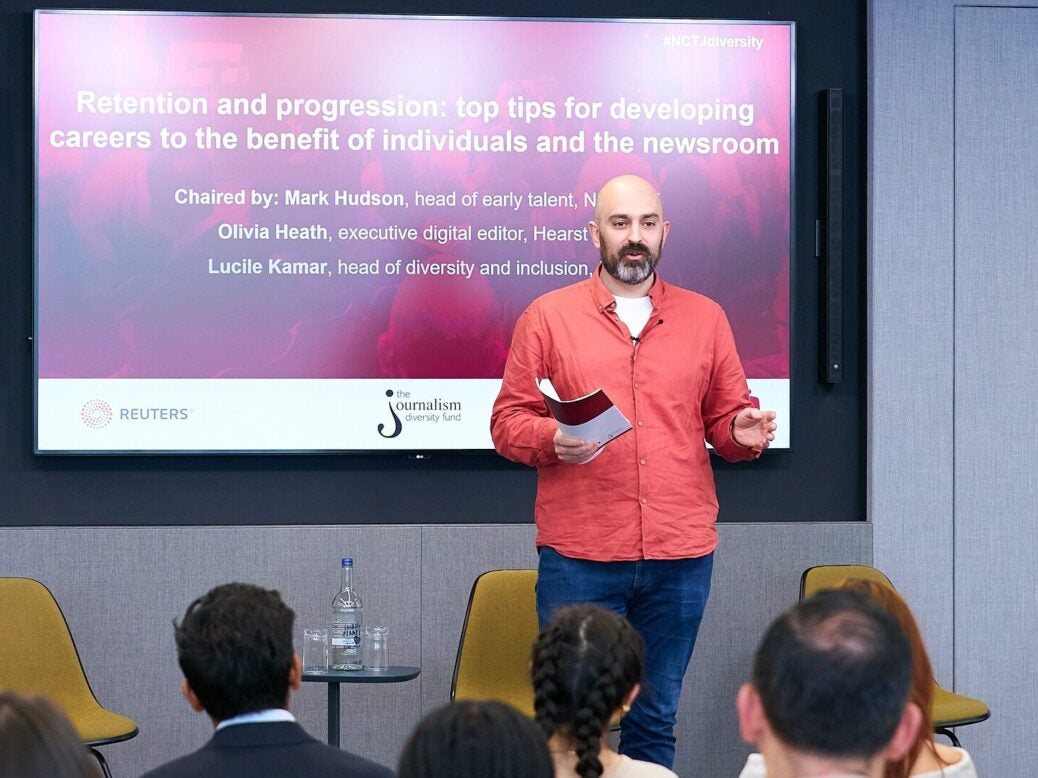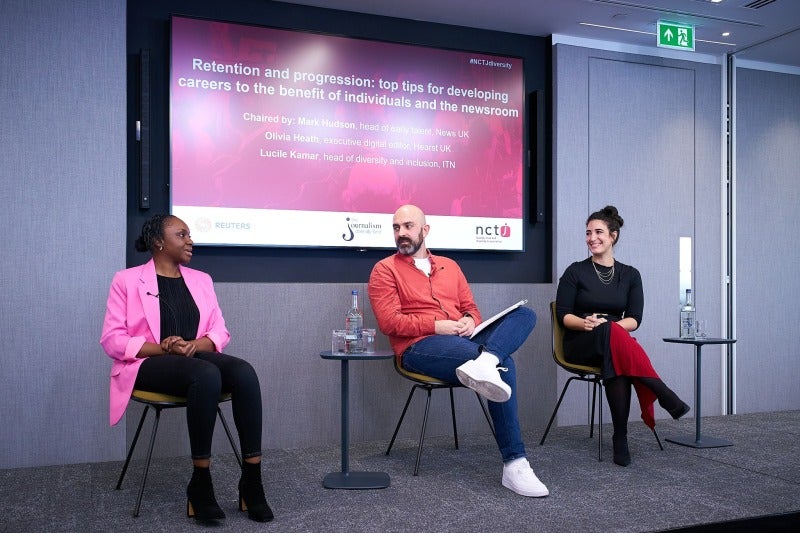
News publishers are “haemorrhaging” some of their “brightest brains”, a senior leader at News UK has warned as retention concerns grow across the industry.
The Times and Sun publisher’s head of early talent Mark Hudson said the combination of staff wanting a better work-life balance following the Covid-19 pandemic and the industry failing to send “messages of confidence” about their long-term career potential means retention of talented journalists has become a “massive challenge”.
Speaking at the NCTJ’s equality, diversity and inclusion conference held at the Reuters HQ in London on Wednesday, Hudson said making sure new recruits stay, grow and develop “can feel like you’re putting water into a leaky bucket”.
“It’s a massive part of our job to try and make sure that our talent stays and doesn’t run away screaming – and also stays within our industry,” he said.
Hudson added: “And this industry faces challenges like never before. On one hand, we’ve got a generation of staff who want more from a work-life balance and on the other hand we’ve got an audience that are demanding 24-hour news coverage. It’s like, how do you solve that one?
“We also have, as part of the conversation of our industry, we’ve got phrases like the death of print, and fake news and stuff like that and that doesn’t send out messages of confidence, particularly to our young talent, that this is an industry for me for the long term and as a result we are haemorrhaging some of the brightest brains in this industry.”
Retention is a particularly urgent topic as newsrooms adjust to hybrid working patterns. A Reuters Institute for the Study of Journalism report on changing newsrooms published in November found that although flexible working is seen as an opportunity to broaden talent pools in the hiring process, it can create problems for retention with managers noting a “sense of disconnect among their staff” as a result.
Some 36% of 135 news leaders said flexible and hybrid working had weakened staff’s sense of belonging to the organisation, compared to 7% who said this had strengthened.
The report said: “Beyond hybrid and flexible working, investing in talent and improving diversity remain two fundamental aspects the industry needs to focus on.
“Alongside concentrating on finding the right diverse talent that reflects the audiences they serve, news organisations will also need to make sure they establish a sense of connection and shared purpose with their staff, in order to retain them and build an inclusive workplace culture.”
Hudson cited HR material suggesting four ways to have a good retention record: creating an inclusive culture, better bosses, getting explicit about career paths, and flexible and creative reward packages.
But he said newsroom progression can be “insane” in the way journalists who get great stories are promoted to become editors – with half their job suddenly becoming staff management usually without receiving any specific training.
[Read more: Good journalists can make bad leaders: Eight media leadership insights to change that]
ITN head of diversity and inclusion Lucile Kamar said in response that at her company, which produces ITV News, Channel 4 News and 5 News, career progression to many journalists means being on screen and conversations with staff found that “very few people actually considered or wanted to go into management positions”.

As a result ITN is trying to “demystify” what a management position means and what it is like to be an editor or lead a team, Kamar said.
She added that a good career path “doesn’t have to be necessarily upwards – there are many sideways career moves that you can do where you can really build your skills, build your networks that are super helpful”.
Kamar said “upskilling” of managers is something that needs to be done more often, as they take on increasing responsibility for employees’ wellbeing as well as their careers.
“I’m having so many pastoral care discussions and my team members come to me about their mental health, which is great. But do our managers have the right skills to respond to that?”
Olivia Heath, executive digital editor at Hearst UK’s House Beautiful, added that it was important for line managers to act as a “coach and a mentor” which will help to “nurture talent, develop talent and retain them”.
Email pged@pressgazette.co.uk to point out mistakes, provide story tips or send in a letter for publication on our "Letters Page" blog
